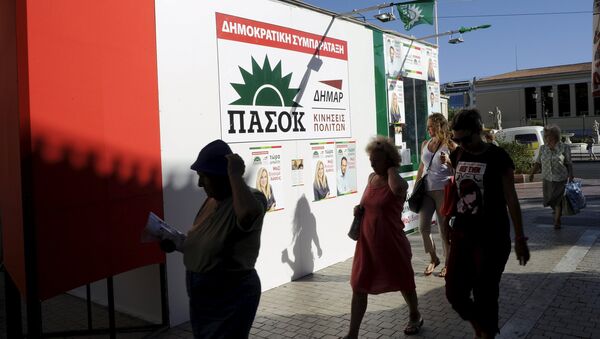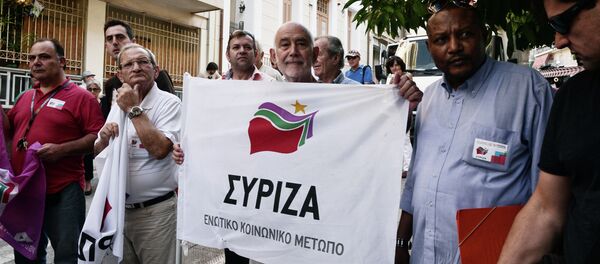Snap elections are currently underway in Greece, as Prime Minister Alexis Tsipras resigned from the post of prime minister in August and called for the parliamentary elections to gain public support for austerity reforms he backed to receive financial aid from international creditors and keep the country in the eurozone, while the opposition failed to form a new government in the country.
The first official exit polls will be published at 7 p.m. local time (16:00 GMT) and the first official estimates are expected to be known at 9 p.m.
"Discussing a possible cooperation between PASOK and Syriza this time, we say that is has to include other political powers, as we have common aims, we are all seeking for national revitalization of our country, and we need to work out a common program that could take Greece out of the crisis. We have very much in common with Syriza," Dimitris Konstantopoulos said, adding that other parties should also join the proposed coalition.
He explained that all the parties that are Europe-oriented and really want Greece to stay in the European Union and the eurozone, "can sit at one table" in order to join their efforts in overcoming the financial crisis the country is facing.
The previous Syriza government created a coalition with the conservative Independent Greeks (ANEL). This time the scenario could repeat, if the latter passes the 3-percent threshold in the elections.
If ANEL fails to enter the parliament, Syriza could address two other smaller parties – PASOK and Potami – to create a coalition.
A coalition between Tsipras's party and the Popular Unity Party led by former Energy Minister Panagiotis Lafazanis, created in the end of August by 25 lawmakers who broke away from Syriza, is unlikely. Both sides have numerously stressed they rule out the possibility due to discrepancy in their views on the third bailout.



